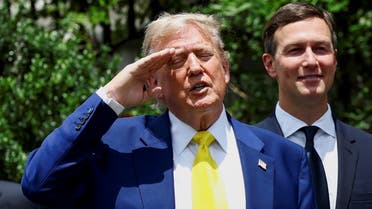Revenue from tariffs totaled $159 billion by late August, more than double what it was at the same point the year before.
Most judges on the U.S. Court of Appeals for the Federal Circuit found the 1977 International Emergency Economic Powers Act, or IEEPA, did not let Trump usurp congressional power to set tariffs. The dissenters, though, said the law does allow the president to regulate importation during emergencies without explicit limitations.
The ruling involves two sets of import taxes, both of which Trump justified by declaring a national emergency: the tariffs first announced in April and the ones from February on imports from Canada, China and Mexico.
The Constitution gives Congress the power to impose taxes, including tariffs. But over the decades, lawmakers have ceded authority to the president, and Trump has made the most of the power vacuum.
Some Trump tariffs, including levies on foreign steel, aluminum and autos, weren’t covered by the appeals court ruling. It also does not include tariffs Trump imposed on China in his first term that were kept by Democratic President Joe Biden.
Trump can impose tariffs under other laws, but those have more limitations on the speed and severity with which he could act.
The government has argued that if the tariffs are struck down, it might have to refund some of the import taxes that it’s collected, delivering a financial blow to the U.S. Treasury.

